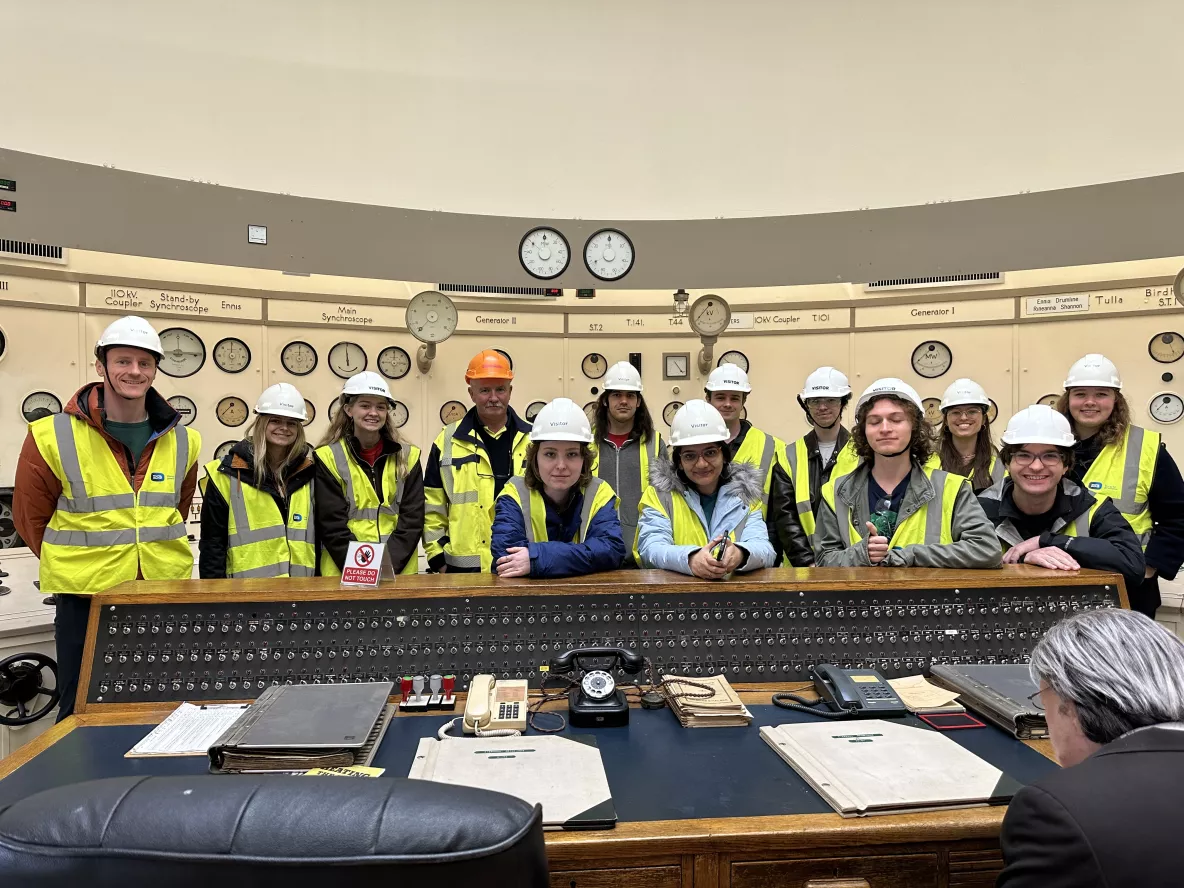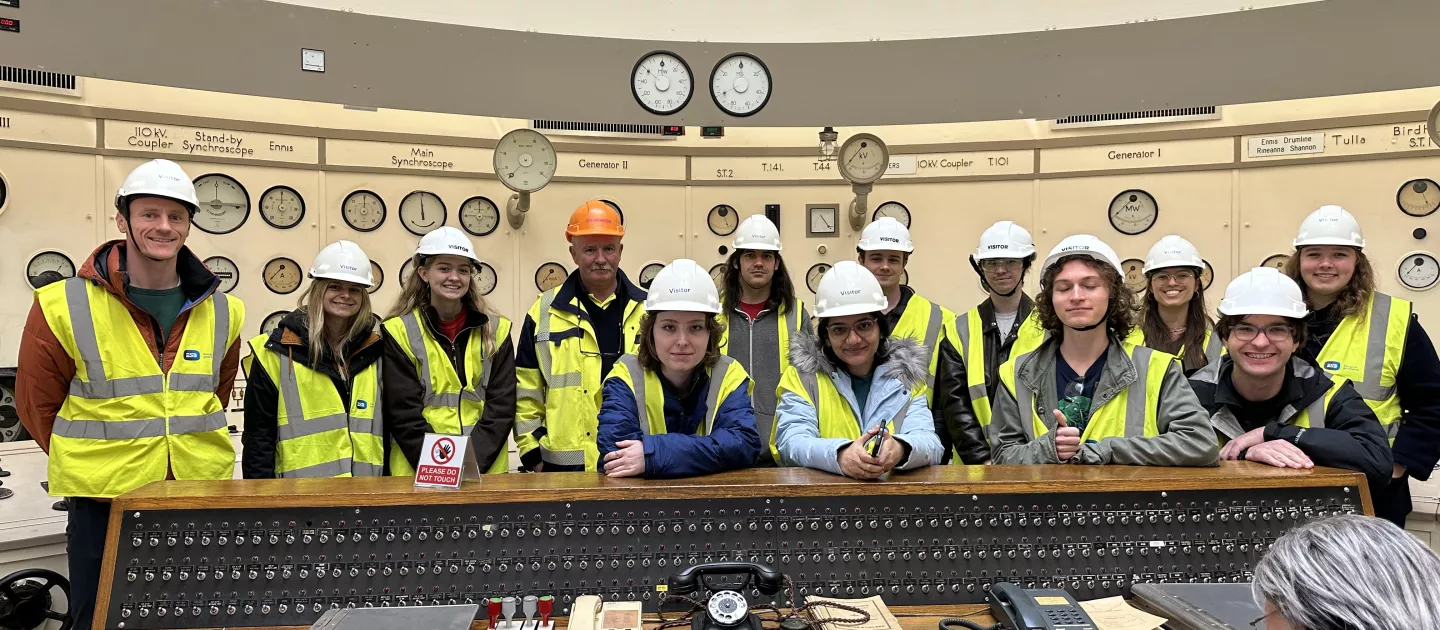
Global Leadership for Sustainable Development (GLSD) is not just a programme, but a life-changing opportunity for students at University of Limerick (UL). This seven-week extracurricular initiative is meticulously designed and delivered by UL Student Sustainability and UL Global.
During the programme, students form teams and develop a project proposal to tackle a key area of UL’s sustainability priorities. By the end of the programme, they will have:
- A Mission Project Proposal
- Pitch Desk and Presentation
- Reflective Portfolio
- Recognition: A Silver President’s Volunteer Award (with full attendance) and a Certificate of Completion
GLSD students also get to enjoy an array of experiential learning facilitated by UL Global and UL Sustainability staff, from a trip to Cloughjordan Eco Village, sustainability campus tours, to guest speakers from Tracworx, SAUL, and AccessCampus.
GLSD students had their final presentations where they had the opportunity to present their mission project proposals which they worked on over the 7 weeks. The presentations were well thought out, innovative, and creative.
Group 1 with Hannah, Karl, and Sarafina presented ideas around digitising and data analysis for tracking sustainability and making informed decisions around campus. Examples included tracking WiFi outputs, bikes coming to UL, and heat or water usage. The data could then be used to find ways to use energy more efficiently and track how to encourage more bikes and less cars coming to UL. It could also be used to educate people on how much energy they use (or save) depending on their habits in work and university.
Group 2 with Adam, Akshanta, Erica, and Global Student Ambassador Ren presented their idea: FAB (Fostering, Affordability, & Building) Campus. A clever and manageable idea to reduce waste on campus by creating a ‘circular economy’ with reusable items which students could have access to via a deposit scheme. This idea would ensure quality of items when returned – or a fund to replace/clean items. Tackling a common issue for international students; the need for heavy items which take up too much space in suitcases and end up in waste at the end of their study abroad, such as duvets, bedding, electrical items, etc.
Group 3 with Nicole, and Global Student Ambassadors Clara and Tjeerd presented a different, but equally important idea: Revitalising River Shannon. Their vision is a symposium aimed to inform, educate, and encourage people of the impact we have on nature – in particular, the River Shannon. Their idea involves a community-wide engagement, from UL Campus to Limerick City with events planned for all ages. This idea particularly resonated with the UL staff who have a particular fondness for the River Shannon, which hosts a diverse range of wildlife and plays an integral role in the West’s habitat.
Group 4 with Brendan, Rabail, and Sparrow was interesting and creative: Biophilic Campus. They proposed the idea to incorporate nature into the classrooms and study spaces of UL to improve student and staff mental health. Their inspiration comes from the Singapore airport, with their vision aiming to be closer to the lush forestry of Killarney National Park. Though a more complicated idea, they proposed a well-thought out plan to collect data on study space and classroom usage plus available sunlight to test out one ‘all natural study room’ and then to make use of the architectural students to help design the room – a member of UL staff even suggested this could be taken one step further to allow the project to be part of the architecture students’ theses.
And finally, Group 5 with Aysha, Matas, and Tobias presented a similar but different idea to Group 2 – Share and Swap Initiative. Their idea involved getting the UL Community together to collect unused items from students and staff for use by international students who need to safe on space during their travels. Instead of a deposit scheme, this idea involves more community engagement for donations of items and a promise by students to maintain quality of the items.
The diversity of ideas and the research the students put into their ideas gives hope for a more sustainable future. All ideas called for community engagement, not just by students, but by staff and the wider Limerick community too.
